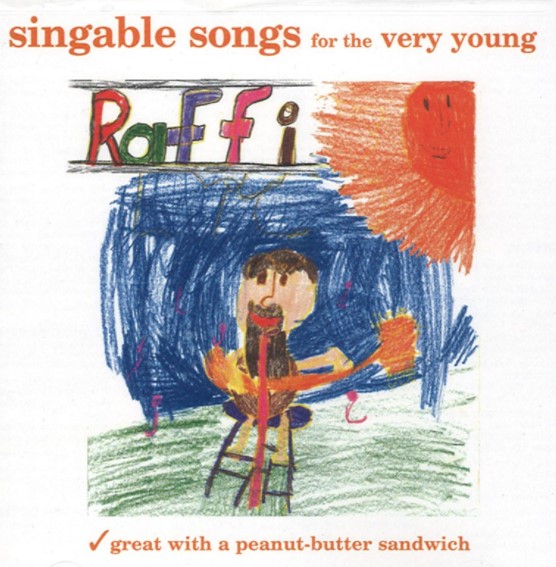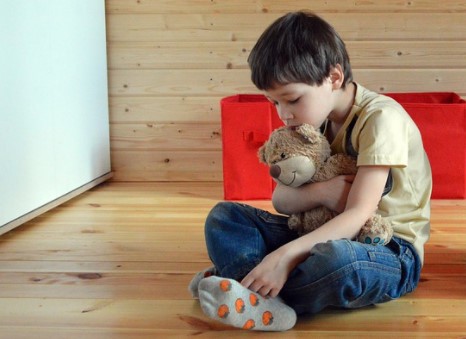For the Love of Sharing
Written by Julie Bisnath, BSW RSW
Sharing—such a hard concept for young children. And teenagers. And let’s face it, many adults too. It’s one of those words that we assume has one “shared definition” but really it doesn’t. It in fact has several definitions and depending on the situation can be a rather confusing word.
Share your toys. Share your cookie. Share the couch.
There’s a lot going on with that one word. It’s no wonder that it can be confusing for children when we use the same word to mean different things.
When we say “share your toys”, what we usually mean is take turns or lend your toy for a little while. “Share your cookie” is completely different. That half will disappear, never to return! “Share the couch”, is different again. We’re asking to share the space, make room, or move over.

It helps young children to learn and understand the different meanings if we use more specific language detailing what it is that we are asking.
Semantics aside, sharing is a pretty loaded word, rife with pressure and judgement. Why do I have to share? What if I don’t want to share? What if I don’t want to share with you in particular? If I don’t share am I a bad person? Am I selfish? How do I decide? How do I know?
Why do we expect children to share when we as adults don’t always? Do you always share your food? Do you share items that are valuable to you? Would you trust just anyone to take care of your special things/pets/children? Would you still share something with someone who has broken your trust (someone who never returns things or has returned something damaged)? What about something that you are using—your car? Your phone? Would you just give it up because someone else asked to use it?
I’m not sure that there are any easy answers. What’s right for me is right for me and what’s right for you is what’s right for you. The item in question, the people involved, and the context of the situation are all relevant factors. There are no right or wrong answers. What I do know, is that for sharing to be meaningful, the motivation for it needs to come from within. I love Raffi’s song for highlighting this concept “It’s mine but you can have some, with you I’d like to share it, cause if I share it with you, you’ll have some too!” Sharing because I want to feels good and is meaningful to me.

When we tell children “you need to share”, or “you’ve had the doll long enough”, or “Jo’s going to have a turn now” we are imposing the act of sharing and teaching them that sharing feels bad. Instead of insisting on sharing we can teach our children to consider the request (or better still notice and observe: “I see that Jo has been waiting and watching you for a long time now…”) and make a decision. If they decide to share, great. If not, that’s ok too. Teach them to kindly and assertively let the other child know that they are not done or are not ready/willing to share. Help the other child to wait and be patient, and to accept the decision. Distraction and redirection often work well. In her post “It’s OK Not to Share”, author Heather Shumaker gives great examples of words to use:
Positive assertiveness
– You can play with it until you’re all done.
– Are you finished with your turn? Max says he’s not done yet.
– Did you like it when he grabbed your truck? Tell him to stop!
– Say: “I’m not done. You can have it when I’m done.”
– She can have a turn. When she’s all done, you can have a turn.
– I see Bella still has the pony. She’s still using it.
– You’ll have to wait. I can’t let you take it out of her hands.
Waiting and awareness of others
– Oh, it’s so hard to wait!
– You’re so mad. You really want to play with the pony right now!
– You can be mad, but I can’t let you take the toy.
– Will you tell Max when you’re all done?
– I see you’re not using the truck any more. Go find Ben. Remember, he’s waiting for a turn.
Sharing (space or toys) at home (or at child care) can be encouraged but does not necessarily need to be enforced or policed. Longer turns can be allowed and the children can practice using some of the language noted above. The more opportunities that they have to practice turn taking the better they will become at expressing themselves and regulating impulse control and emotions.

Sometimes, adults do need to guide the play. In a public space for instance or during a group activity an adult might have to remind the children that the toys and equipment are for everyone. Turn taking might need to be discussed ahead of time: “Today at playgroup, you can have a turn on the slide and so can all of the other children”. Another example might be to talk about sharing toys and turn taking when hosting a playdate. It’s ok if there are certain special toys that your child does not want to share. Put those toys away for safe keeping only to be brought out once the playdate is done. The same is true for taking special toys to child care. On the one hand, if it will be hard to share the special toy then it might be best left in their cubby or backpack. On the other hand, it is also important for children to learn that not everything is for sharing. Discuss it with your child care provider to determine how best to proceed.
To share or not to share–it’s not easy, to say the least, and takes a lot of practice and patience. When we model the language of sharing (positive assertiveness and waiting) we are teaching lifelong skills and increasing resiliency. When we, as adults, feel intrinsically motivated to share with others, our children will witness this kindness and learn from our example. Best of all, when they feel motivated to share, and when they make that decision for themselves, we’ll know that it’s sincere and comes from the heart.

References:
- www.raffinews.com/files/music_arrangements/childrens_favorites/sharing_song.pdf
- www.positiveparentingsolutions.com/parenting/its-ok-not-to-share
